[Five years of hard work and hard work, Chinese people who realize their dreams] Life is lucky to catch up with the big event of Beidou, 22 years of youth follow the road of satellite navigation to be
"Although you can’t see them when you look at the sky, we can receive more than four satellites to locate and navigate at any time and any place. I know that Beidou is shining in the sky." Wang Shufang dedicated her youth to the cause of Beidou. Now she has worked in the transportation industry for ten years. In the future, she will introduce core technologies such as Beidou and big data into the transportation field, and use modern technology to give back to the people and serve the people’s livelihood.
Life is lucky to catch up with the big event of Beidou 22 years of youth follow the road of satellite navigation power
[Five Years of Forging Forward · Realizing Dreams Chinese Series Report]
Future Network (www.k618.cn) Beijing, September 29th (reporter and Haijia) The world is vast and vast, and human beings have been curious and exploring their location and coordinates on the earth for thousands of years.
"The first bit is ready, and the second bit receives the signal…" Before the first launch of the Beidou navigation test satellite in 2000, the first batch of "Beidou people" in the simulated space laboratory were busy with one after another. The Beidou satellite "lay" in a large tank filled with liquid nitrogen, while Wang Shufang and colleagues recorded data with receivers and conducted more than 48 hours of joint debugging tests.
In June 2016, the 23rd Beidou navigation satellite was launched from the Xichang Satellite Launch Center on a Long March 3C carrier rocket.
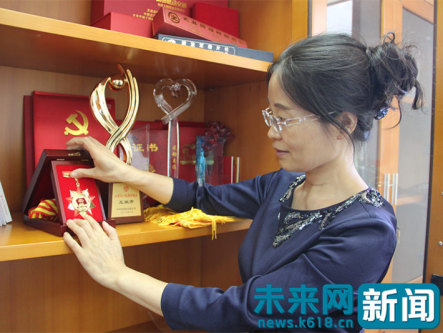
Since the completion of the Beidou navigation test system in 2003, the promotion and application of Beidou navigation, such as vehicle navigation, mobile phone positioning, and ship navigation, have gradually penetrated into the national society and people’s livelihood. Beidou navigation has been ranked among the four major navigation systems in the world, including GPS in the United States.
"As a soldier, I don’t look like a soldier. I don’t know how to carry a gun, but I also protect my family and the country, and regard national security and national interests as the highest responsibility. It is also an honor to be a soldier with a pen." Wang Shufang, deputy director of the navigation center of the China Transportation and Communication Information Center, explained the former military career.
"Beidou Navigation has penetrated into all areas of the national economy and into the daily lives of ordinary people. Our entire society and ordinary people are increasingly inseparable from it. If we still rely on foreign systems and are controlled by others under such circumstances, you can imagine how great the impact will be."
"As a world power, China should have the initiative in the field of navigation and have its own things."
This year, Wang Shufang became the representative of the 19th National Congress of the Communist Party of China elected by the Ministry of Transport: "Through the promotion and application of Beidou, we have strengthened the supervision of road transportation safety. In 2016, compared with 2011, the death rate of a major road transportation accident with more than 10 people decreased by 60.9% year-on-year, which promoted the people’s livelihood of transportation."
Waiting for the snow to come by the Hulan River, the hot-blooded youth sows "a generation of Beidou"
Standing next to the tall Northeast corn fields, Wang Shufang shuttles this path to middle school every day, traveling 8 kilometers back and forth. Seeing that all the villagers have bought bicycles, there are few people on the road, and she is often worried that a big dog or a stranger will emerge from the corn fields on both sides.
After the heavy snow in the Northeast, the cold stars were clear and shining. Wang Shufang kicked the deep snow on the way out of school, and murmured in her heart a self-created teenage poem: "Feet on snow, the sky above is full of stars, the birds have returned to their nests, and the sounds are silent. Ten years of cold windows, how can I be happy for myself? Ambition and ambition have long been buried in my heart."
In the case that her peers in the village gave up their studies very early, in 1991, Wang Shufang was admitted to Beijing University of Aeronautics and Astronautics from Northeast Jilin, majoring in electronic engineering. She was the only child among the six siblings in the family to be admitted to college.
"My parents were in poor health, so I cried hard when I got the university admission notice. I didn’t know how to go without the travel fee, so I could only borrow money to go to school." Wang Shufang recalled the moment when she realized her "college dream".
In the early 1990s, China began to build its own satellite navigation system. On the eve of her graduation from university, Wang Shufang was just in time for the Beidou preparatory team to recruit students from Beihang. "Go to Beidou to match my major, and start from scratch. The country is blank, and the world is third. It is attractive." Wang Shufang was enthusiastic about the construction of Beidou. At that time, there were more than 100 people majoring in electronic engineering at Beihang, and she was the only one who went there. Other students preferred well-paid foreign company positions or went abroad.
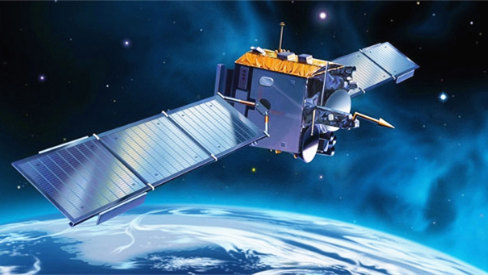
At that time, the Beidou scientific research conditions were difficult, and the Beidou project team lived in a guest room in the guest house. As the first batch of college students, Wang Shufang and her colleagues crowded into the four-person dormitory of the military camp and slept on the bunk.
In the early days of Beidou construction, Wang Shufang was mainly involved in the overall design of the Beidou navigation system, responsible for the development of Beidou user machines, and often traveled to other places to conduct system development and joint debugging tests.
In Suihua, on the banks of the Hulan River in Heilongjiang Province, in an extremely cold area at minus 40 degrees Celsius, Wang Shufang, who carried more than ten catties of user computer on her shoulder, held the test instrument that could "freeze too much" at any time into her arms, and stepped on the snow to freeze painfully to test the attenuation of satellite signals in rainy and snowy weather.
"At that time, it was the peak of the IT and electronics industry 98 years ago. No one knew whether Beidou would succeed or not, and the scientific and technological personnel were very popular. At that time, many colleagues and students around him went abroad one after another." Wang Shufang was confused and did not know when the "Beidou Dream" would come true. The outside world was a social temptation under the reform.
"Continuous testing and staying up late were common at the time, but the physical effort was shallow, and many people were unwilling to participate, mainly because everyone would think about what if they failed. At that time, no one knew how long it would take for Beidou to succeed, and what kind of technical difficulties to overcome. How many people were willing to jump down and do something for ten or eight years before they might come out?"
In the early days of the construction of Beidou, Wang Shufang could not reveal the slightest bit to the outside world before the civilian opening of the Beidou system, appearing mysterious: "At that time, the villagers in the village thought that being a soldier was just a general way out for young people, and it was more glorious to find a good job after graduating from college than being a soldier. I worked in the army, and I can’t say what I did. Some people think you have developed problems in the unit…"
In 1997, the user machine was finally about to come out. Due to the long-term "5 + 2, white and black" connecting shaft overtime, Wang Shufang fainted and was hospitalized at work. After the hospital examination, Wang Shufang had 20,000 abnormal heart rate many times a day, "The heart beats prematurely. When the heart beats abnormally, I feel a thump in my heart, like the water in the bottle can’t be poured out, and I choke."
In October 2000, the first Beidou navigation experimental satellite was launched, and the Beidou satellite navigation experimental system was completed in stages. China became the third country in the world to have an independent satellite navigation system.
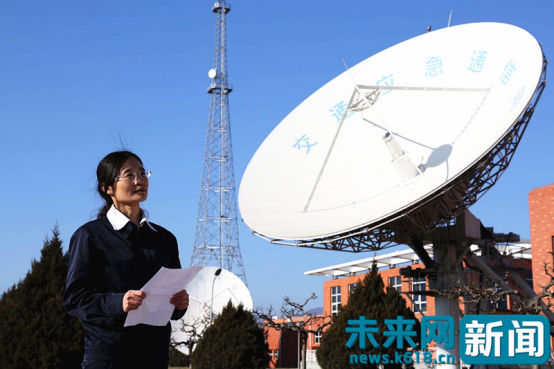
"When it comes to how great people are, I think it’s a gradual process."
"When I graduated from Beidou, I wanted to do it fresh. Later, I found that Beidou is not just a matter of catching up with the international leader, but also involves national strategy and national interests." Wang Shufang revealed her own mental journey of following Beidou. A sense of responsibility and mission supported Wang Shufang to walk through the difficulties and confusion of Beidou construction. "As a Chinese, you have to defend the cause of state-owned brands, which means that if you do it, you must do it well. This is an unshakable mission. To say how great people are, I think it is a gradual process."
As the designer of the Beidou application system, Wang Shufang participated in the demonstration and plan formulation of the two-generation Beidou system, wrote the four national military standards that became the important basis for the construction of the Beidou system, and presided over the completion of a number of Beidou user machines.
In 2007, the country stepped up the civilian opening process of Beidou. Wang Shufang discovered a new flashpoint in Beidou’s business and switched to the transportation industry. From scratch, she focused on Beidou’s transportation application and transportation informatization work. "People always have their own ideas, that is, what do you want to do?"
Wang Shufang led the implementation of the first "civil demonstration project" of the second-generation Beidou system, promoting the installation of Beidou navigation end points to national key operating vehicles such as heavy trucks, dangerous goods vehicles, and large passenger cars, and comprehensively building a "key operating vehicle networking joint control system".
"At the beginning, owners and managers resisted the installation of Beidou end point and were unwilling to be supervised." Wang Shufang organized coordination meetings again and again to analyze the national strategic significance of Beidou, and at the same time designed Beidou end point service functions such as voice prompts and information transmission to adapt to the needs of the industry. By popularizing the application to reduce the price of Beidou end point, "Beidou end point has been comparable to GPS price."
At present, the Beidou navigation end point has grown from the 80,000 that were initially "unable to push" to more than 5 million units. Nearly 1,000 Beidou end point production and service enterprises have entered the transportation field, driving the output value of tens of billions of yuan, and realizing the ice-breaking of Beidou in the application field of people’s livelihood.
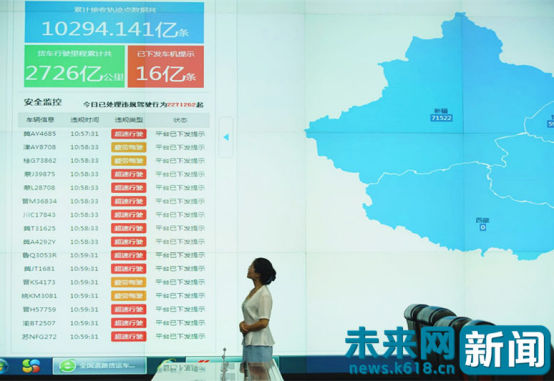
"Speeding", "Violations have been corrected", "The platform has issued a prompt"… On the morning of September 26, the reporter saw that on the monitoring screen of the emergency command hall of the Ministry of Transport, the data of key operating vehicles was constantly tumbling, and the vehicle location data obtained by more than 5 million Beidou navigation end points was returned to the operating vehicle supervision service platform every day to ensure the national traffic emergency command and daily safety supervision.
The road transport accident casualty rate has dropped. Since the promotion of the Beidou navigation end point in 2011, the death rate of a major road transport accident with more than 3 people in six years has decreased by 47.4% year-on-year, and the death rate of a major road transport accident with more than 10 people has decreased by 60.9% year-on-year.
"The characteristic of a doctor is to see a doctor and save a person. When a person is sick, the doctor will save him. Our characteristic is that prevention comes first, which is no less than the role of a doctor in treating a patient and saving a person. It has saved many people’s lives, property safety and family happiness." Wang Shufang deeply felt the significance of Beidou Navigation’s traffic promotion and road transportation safety supervision.
"I don’t think it’s hard work to do Beidou, but more luck. I was able to catch up with Beidou as soon as I graduated. Later, Beidou was paid more and more attention by the country and was used by the whole society.
I have no regrets about choosing Beidou in this life? One regret: my parents will never know what I do
When it comes to Beidou navigation construction and future development, Wang Shufang always mentions the need to "use to promote construction", directly or indirectly feed back the Beidou navigation system through Beidou’s industrialized marketing activities, and promote Beidou’s research and development and upgrading.
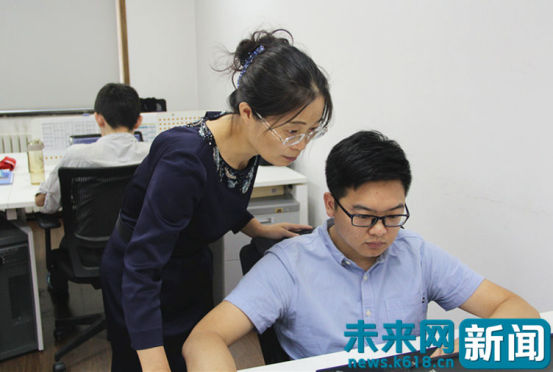
At present, Beidou navigation products have been widely used in transportation, marine fisheries, hydrological monitoring, emergency search and rescue and other fields, driving the development of Beidou industrial chain from chip to end point, involving communication, end point, chip and other aspects, generating hundreds of trillions of output value.
"Most domestic mobile phones like Huawei are now equipped with multi-mode navigation chips with Beidou Navigation. Beidou anti-lost bracelets have also been launched, and ordinary people use Beidou Navigation in their daily lives." Wang Shufang looked at Beidou "being born" and guarding Beidou "growing up", and she was relieved.
In a scene that is still fresh in Wang Shufang’s memory, Wang Shufang gave a lecture to a primary school in Zhangjiakou, Hebei Province. A fourth-grade girl looked at her timidly in the narrow corridor and said: "Teacher Wang, my father is using Beidou, and my father is a cart driver."
"The child and the parent are proud to be using China’s homegrown navigation. Before, a driver was unwilling to use the Beidou end point and unwilling to be regulated. Now they know that using Beidou not only promotes national security strategies, but also protects individuals and families." Wang Shufang has come a long way since she was often asked "What is Beidou navigation? Why do we use Beidou?"
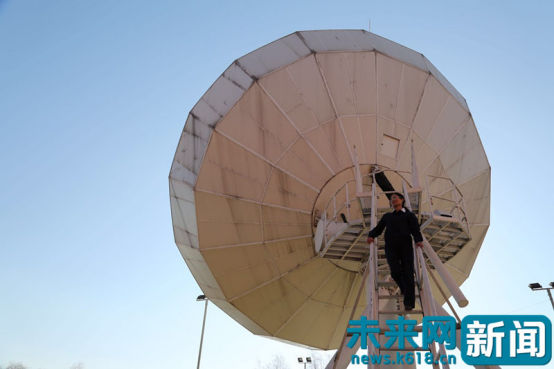
"The military medals are half of mine and half of yours." Wang Shufang is grateful for the career support her family has given over the years, and her daughter, who is in primary school, is also intelligent and sensible. "When I grow up, I want to be an excellent person like my mother." The daughter is very proud of Wang Shufang, and sends WeChat messages to encourage her mother when she works overtime: "No matter what you work, you get what you work for. Let’s cheer together." Wang Shufang showed reporters the inspirational WeChat sent by her daughter: "No one can do anything without the support of their family, and I have no resistance in this regard."
After 22 years in the Beidou business and a long and colorful career, is this path of persistent pursuit of Beidou incisive and full of regrets? Wang Shufang shook her head: "I have a regret."
"What exactly do you do?" Wang Shufang’s father was concerned about her daughter’s situation in Beijing, but due to the confidential management in the early days of Beidou construction, Wang Shufang could not tell her parents about his work.
My parents left 2000 years ago. At that time, I thought that after Beidou lifts off, I could take a proper rest and pick up the elderly to see Beijing at least once. I especially hope that one day I can even take them to see… "
At the age of 19, he left his hometown. The firm wish of his youth in the fields of Northeast China has gone through twists and turns and sprouted and blossomed. Now that his parents and loved ones understand, Wang Shufang is willing. And his parents, who have long since passed away, will never know that they raised such a daughter for the country.
The "Beidou-3" satellite is expected to be launched in 2017, and the Beidou navigation system is expected to complete the launch of 18 global networking satellites in 2018. China will build the Beidou global networking system around 2020 to provide services to global users.
China’s Beidou, the world’s Beidou.
In the next five years, Beidou Navigation is gradually expanding globally, becoming another Chinese calling card after the export of nuclear power and high-speed rail, leading China’s technology industry to the world stage.
"Although you can’t see them when you look at the sky, we can receive more than four satellites to locate and navigate at any time and any place. I know that Beidou is shining in the sky." Wang Shufang dedicated her youth to the cause of Beidou. Now she has worked in the transportation industry for ten years. In the future, she will introduce core technologies such as Beidou and big data into the transportation field, and use modern technology to give back to the people and serve the people’s livelihood.